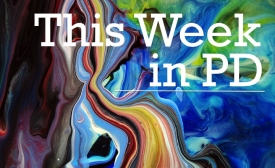russia
The Foreign Affairs Committee of the European Parliament adopted a resolution Monday to allocate funds to counter what it described as “aggressive Russian propaganda.” The resolution, passed by 53 votes to 10, with 3 abstentions, called on EU member-states to “refrain from doing bilateral deals with Russia and step up their own collective efforts to withstand it, whilst retaining a return to cooperation with Russia as a long-term goal.”
Festival of Indian Culture in Russia represents cultural exchange and contributes to stable strategic relations between Russia and India, President of India Pranab Mukherjee said on Sunday at the opening ceremony of the festival. Nine Russian cities will hold the Namaste Russia festival that will last from May until November 2015.
Saturday’s Victory Day parade in Moscow was a compelling demonstration of Russian military might. More than 100 planes, 16,000 troops and 200,000 civilians carrying portraits of relatives who fought in the Second World War were involved. New weaponry on display included the Armata tank and a new intercontinental ballistic missile launcher that was developed in response to Nato anti-missile systems.
Russia marked 70 years since the victory over Nazi Germany on Saturday with a spectacular parade in Moscow featuring some 16,000 soldiers, 200 armored vehicles and 150 planes and helicopters. This is expected to be the last major anniversary of the conflict when significant numbers of World War II veterans are still alive to take part.
Plisetskaya’s U.S. debut came at a time when ballet made prominent headlines in America—in part because of its role as a tool of Cold War cultural diplomacy between the U.S. and Soviet Union—and dancers regularly became household names. The Bolshoi made the cover of Newsweek the week before we wrote about Plisetskaya’s arrival.
Western governments and institutions are scrambling to devise a commensurate response to Russia's state-run media offensive, analysts told The Moscow Times on Wednesday amid a wave of reports of Western governments seeking to beef up their own media capabilities.
Proposed changes to Moldova's broadcast regulations are creating a free-speech conundrum. The amendments are primarily meant to counter propaganda from Kremlin-friendly Russian broadcast outlets, but they also could end up placing curbs on journalists' ability to cover the Moldovan government.

Creative tensions as art and diplomacy challenge each other for more innovative approaches to culture.







